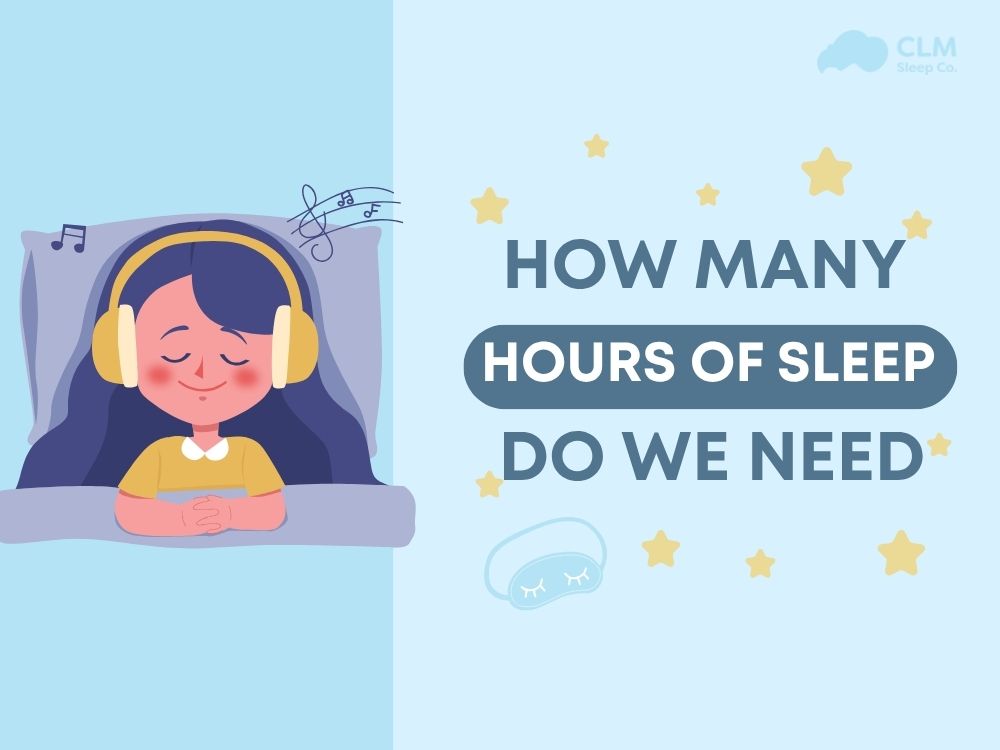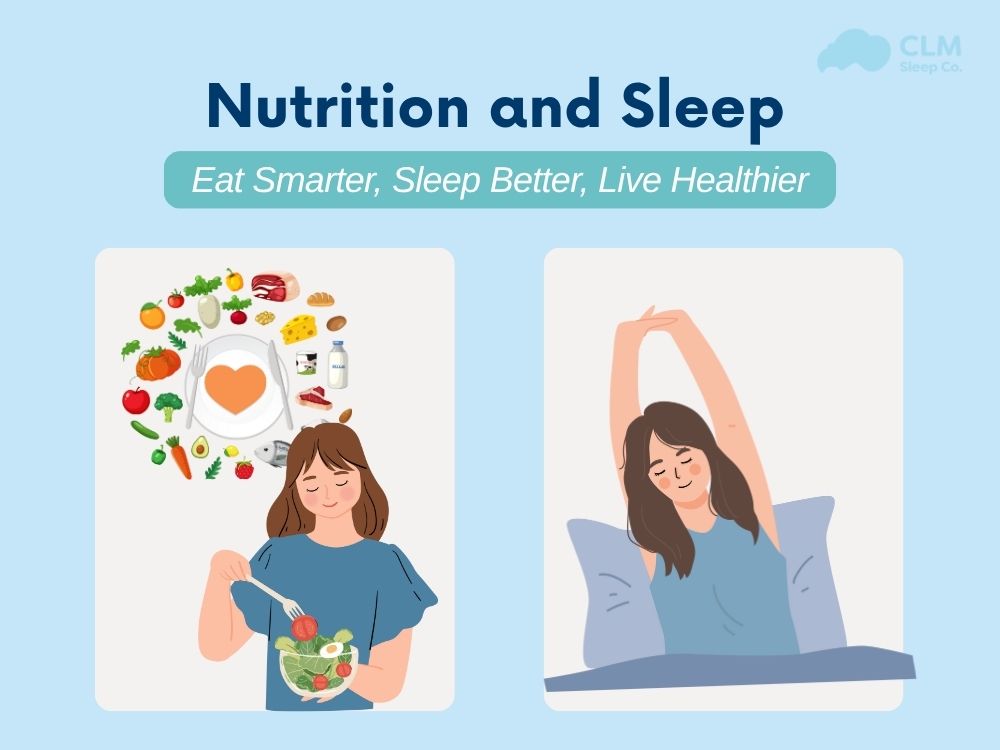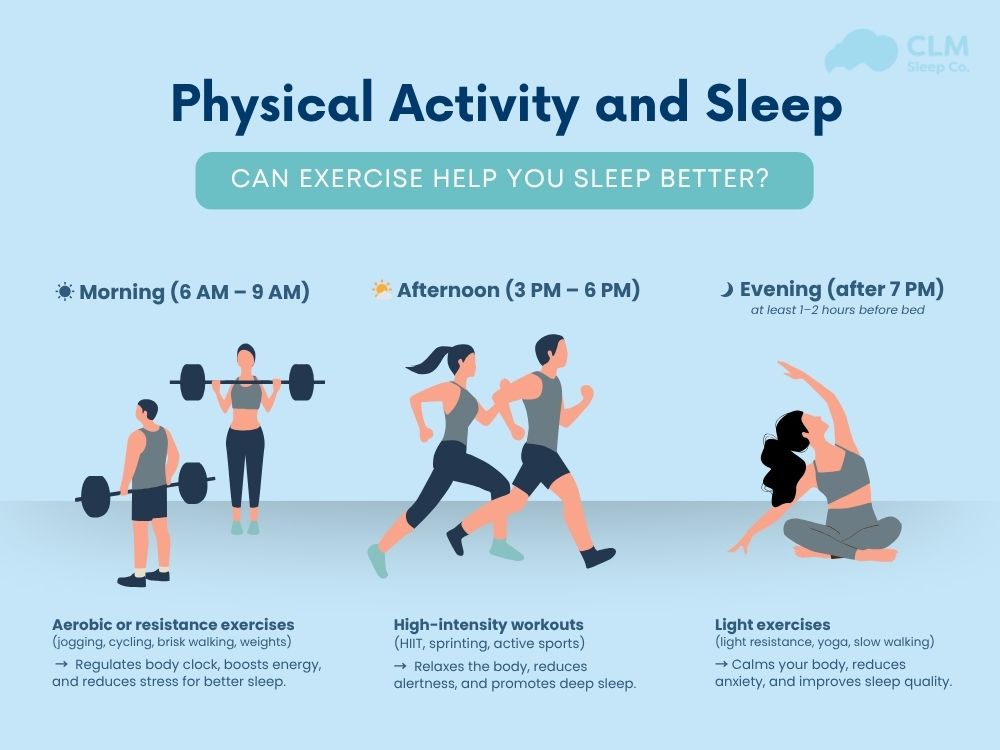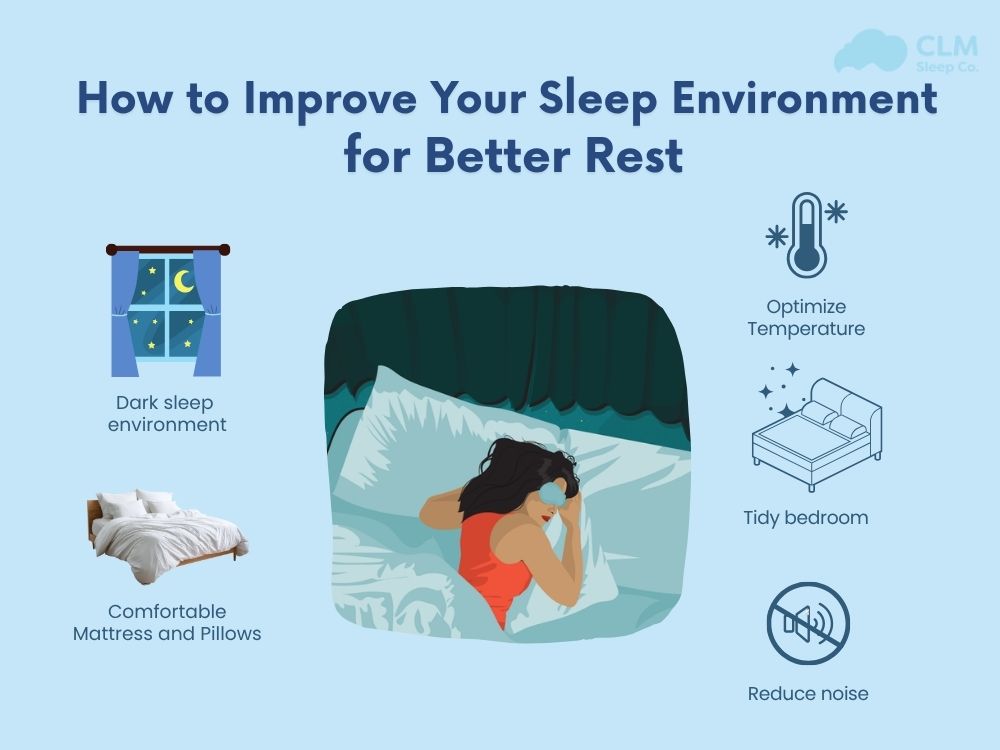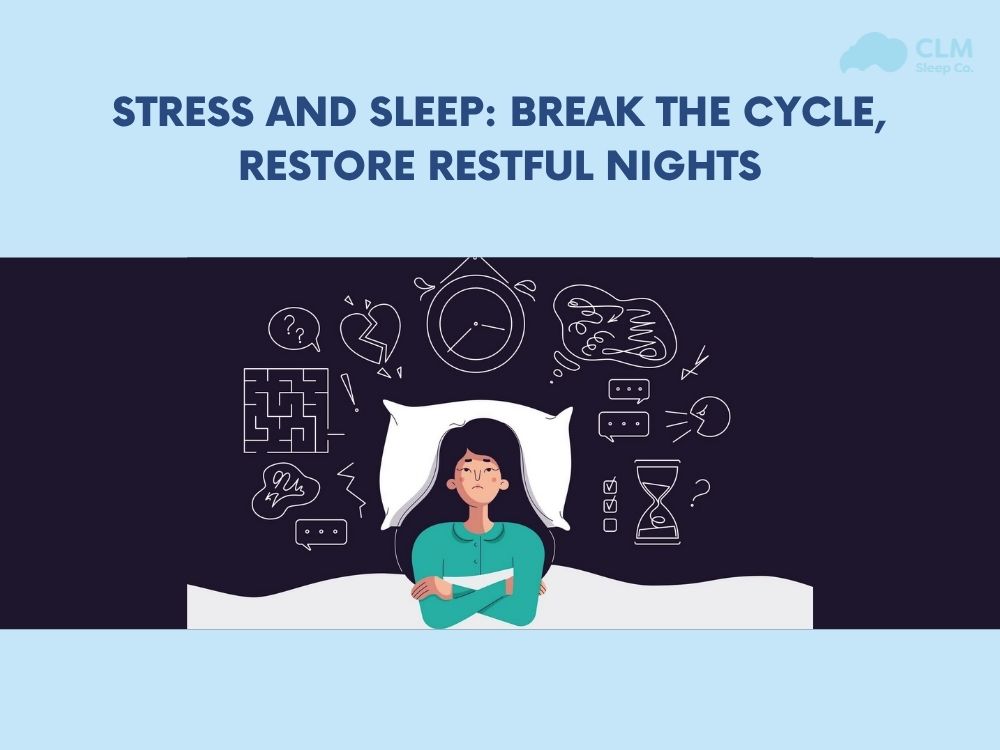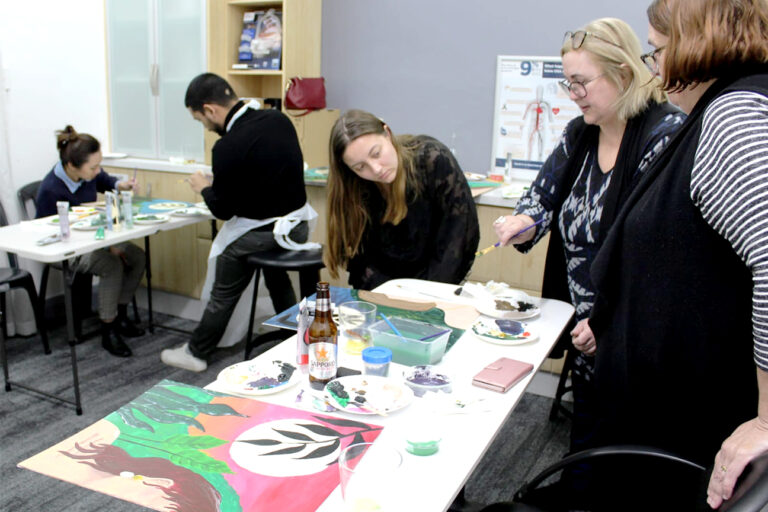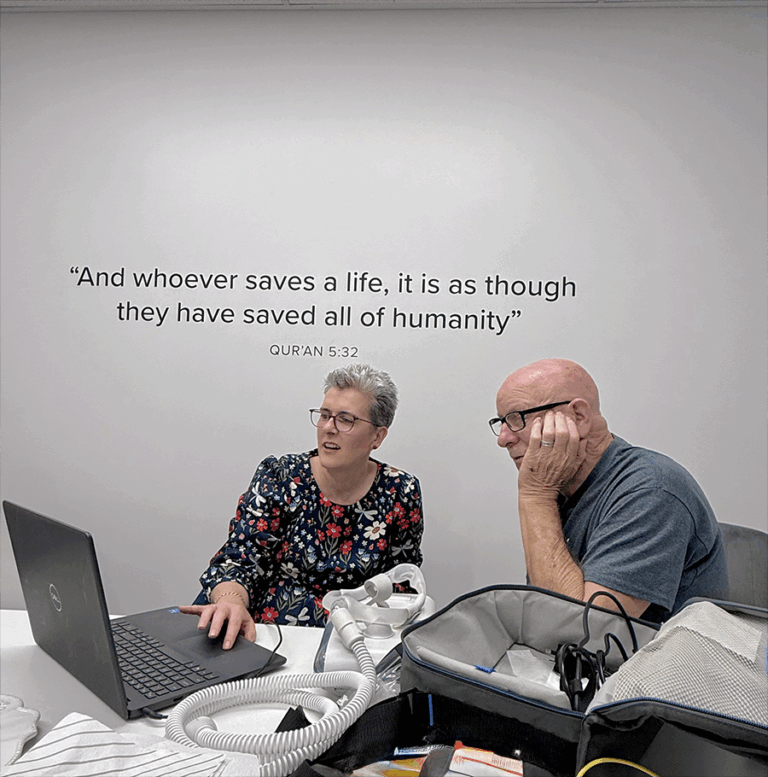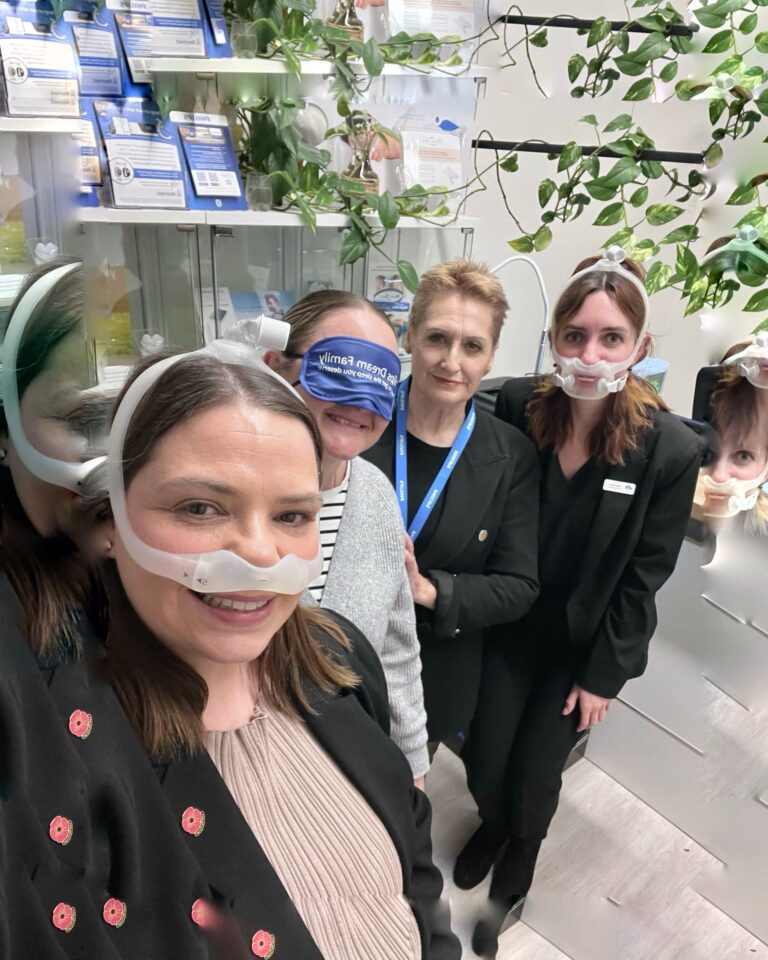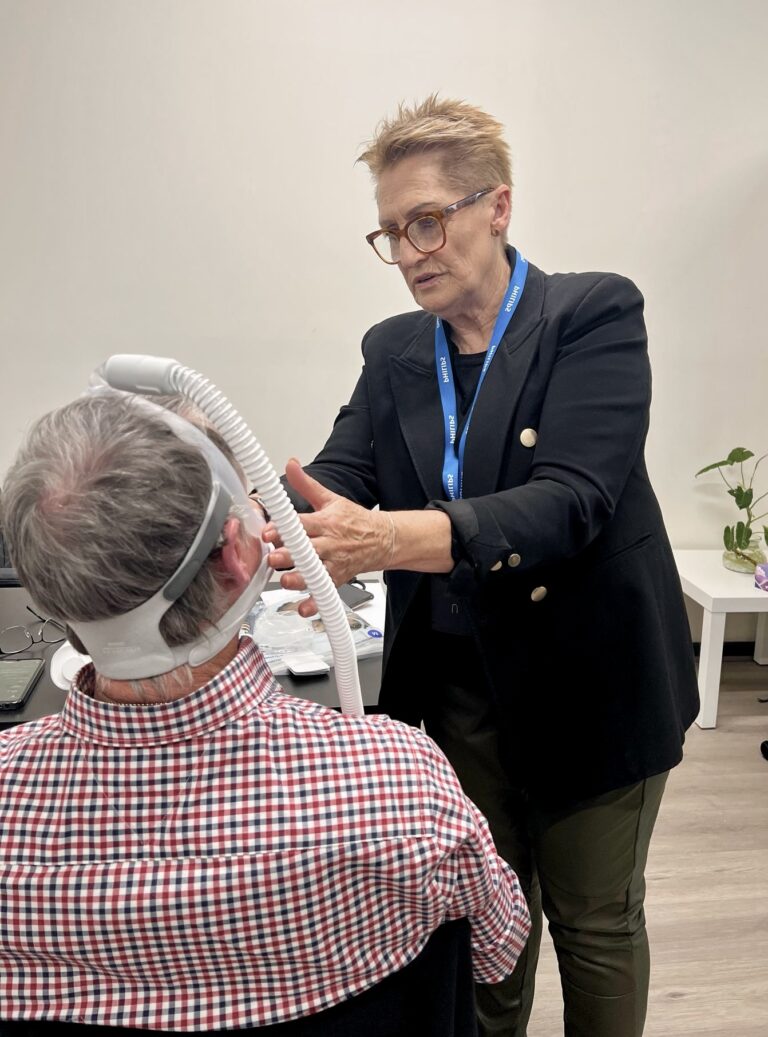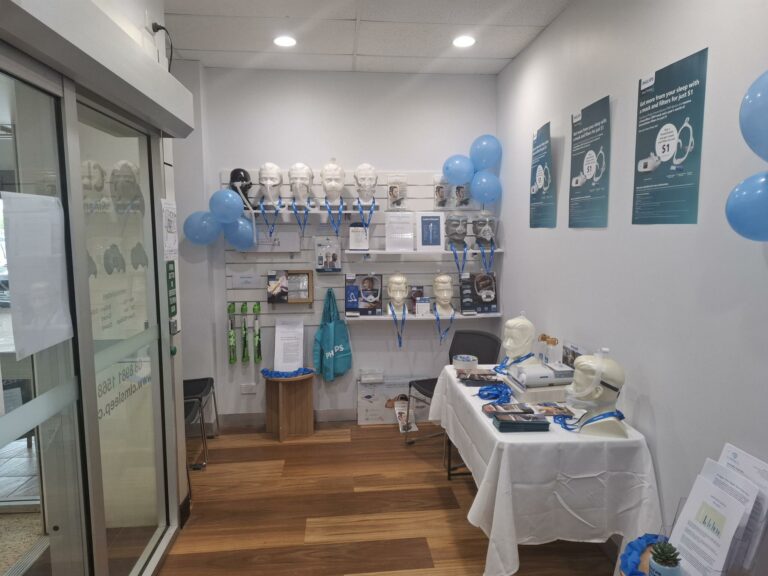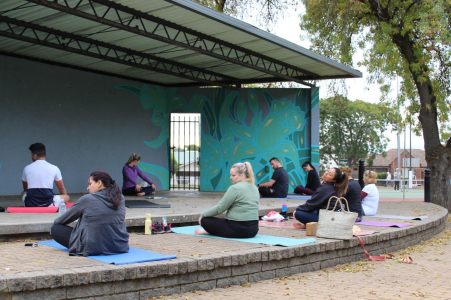Have you ever wondered: “how many hours of sleep do we need” to always feel healthy? Currently, many Australians have sleep problems; some lack sleep, and some worry because they sleep too much. Certified sleep coaches and scientific research agree: Sleep quality directly affects your mood, memory, health, and energy. In this article, we will analyze what is the recommended sleep duration, how much sleep is enough, and the ideal amount of deep sleep according to each age to take good care of your health.
Why Sleep Duration Matters
Why do we need sleep? Sleep not only helps the body rest and relax after a long day of activity. It is also a process of cell recovery, immune enhancement, hormone balance, mental support, and memory consolidation. Many studies at sleep clinics in Australia show that lack of sleep increases the risk of heart disease, diabetes, obesity, and psychological problems. Even the ability to learn, absorb, and remember is significantly reduced if you lack sleep.
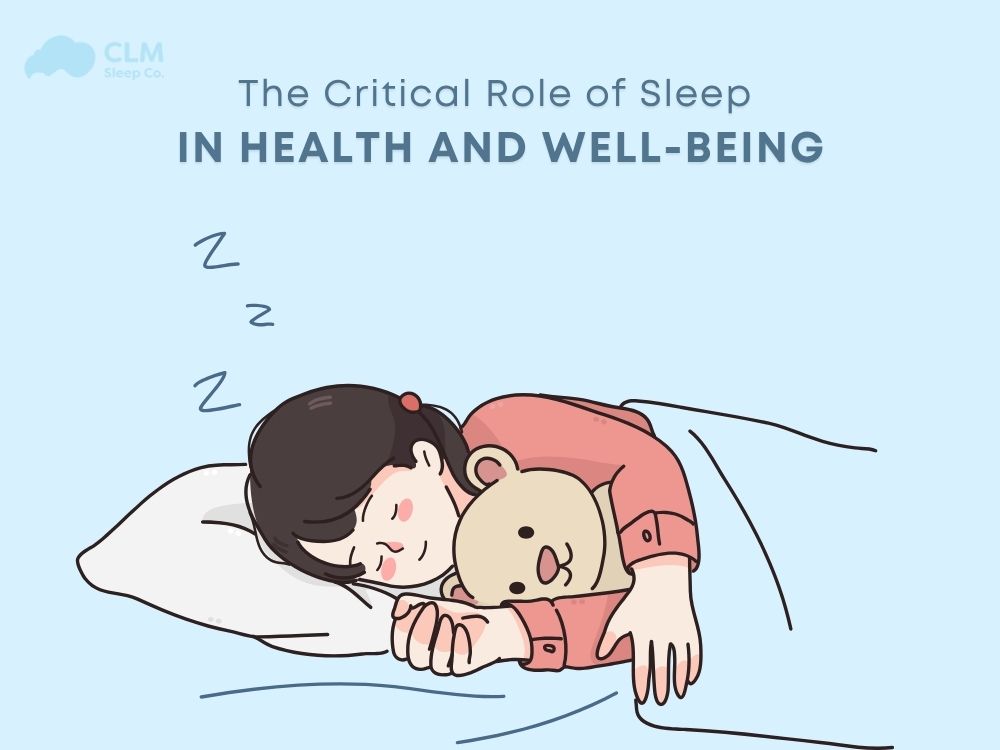
In particular, quality sleep must include all stages of sleep: transition to sleep, light sleep, deep sleep, and REM sleep. Among them, REM sleep is especially important for supporting brain function, while deep sleep helps the body truly recover.
How Many Hours of Sleep Do We Need by Age?
According to the National Sleep Foundation’s study on sleep duration, published in March 2015, the appropriate sleep duration for each age group is detailed in the table below.
| Age group | Sleep time according to age | Less than | More than |
| Newborns (Birth to 3 months) | 14 to 17 hours per day | 11 hours | 19 hours |
| Infants (4 to 11 months) | 12 to 15 hours per day (including naps) | 10 hours | 18 hours |
| Toddlers (1 to 2 years) | 11 to 14 hours per day (including naps) | 9 hours | 16 hours |
| Preschoolers (3 to 5 years) | 10 to 13 hours per day (including naps) | 8 hours | 14 hours |
| School-aged children (6 to 13 years) | 9 to 11 hours per night | 7 hours | 12 hours |
| Teenagers (14 to 17 years) | 8 to 10 hours per night | 7 hours | 11 hours |
| Young adult (18-25 years) | 7 to 9 hours per night | 6 hours | 11 hours |
| Adults (26 to 64 years) | 7 to 9 hours per night | 6 hours | 10 hours |
| Seniors (65 years and older) | 7 to 8 hours per night | 5 hours | 9 hours |
Not all sleep stages are equal. Deep sleep (deep sleep – slow-wave sleep) plays a key role in tissue recovery, information recall, and increased resistance. According to research, adults should spend 20–25% of their total sleep hours in this stage, equivalent to 1.5 – 2 hours a night if sleeping 7–9 hours. Children still spend more time in deep sleep to support rapid development.
If you still feel tired despite getting enough sleep, it could be because you’re not getting enough quality REM sleep and deep sleep. Signs of deep enough sleep are that you feel alert, have good memory, and have emotional balance the next day.
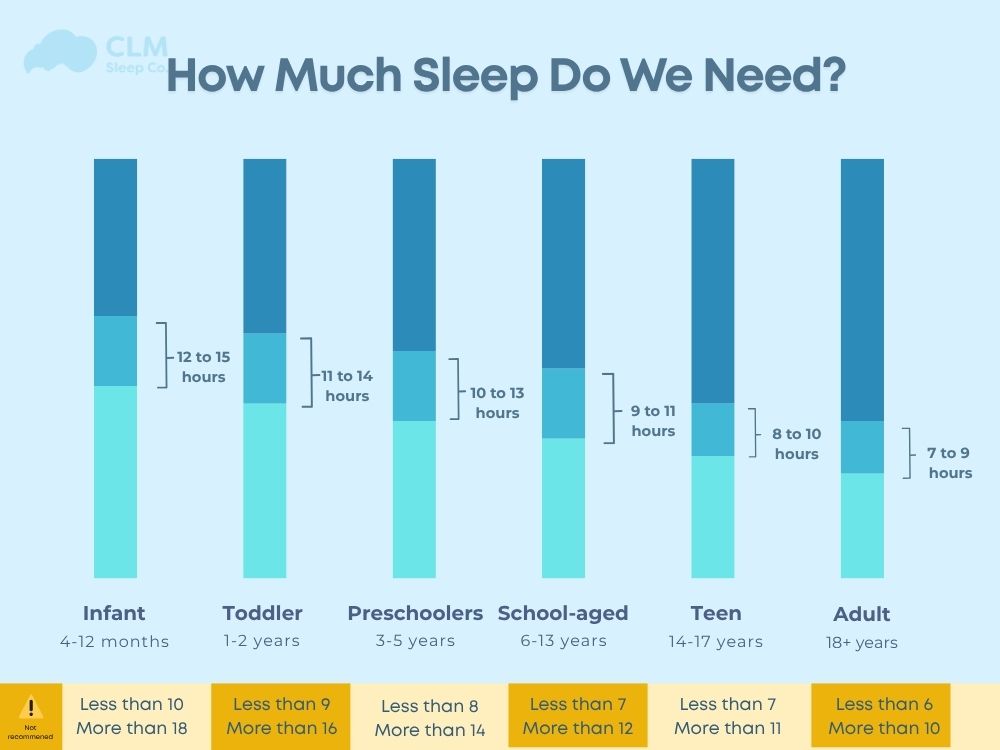
See more:
How much REM sleep should you get
Factors That Affect Sleep Needs
Sleep is an essential part of life, but each person’s sleep needs are very different and are affected by many factors. Here are the key factors that determine how much sleep you need and what the quality of your sleep will be:
- Genetics: Some people are “born” with the need to sleep more or less than normal people.
- Lifestyle: Several factors, such as stress, shift work, living habits, diet, and using mobile devices before bed, all have a great impact on sleep.
- Physical health: Symptoms of pain, illness, pregnancy, or recovery cause how much sleep you to need to temporarily increase.
- Sleep quality: Even though you sleep enough hours, you wake up many times during the night or have disorders that reduce the quality of your sleep.
- Environment: Temperature, light or bedroom noise also cause disruptions in the deep sleep cycle.
Therefore, to limit these effects on sleep, you need to listen and adjust your habits to suit your body’s responses.
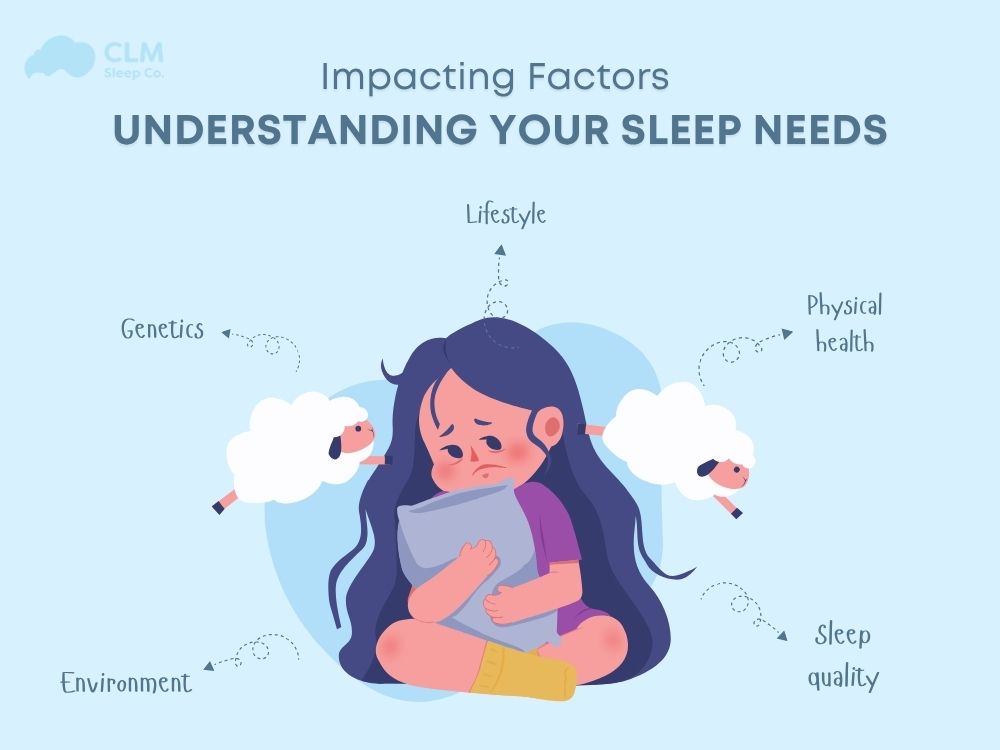
Signs You’re Not Getting Enough Sleep
Certified sleep coaches warn that if you have the following signs, you may not be reaching how many hours of sleep are enough:
- Fatigue and constant sleepiness during the day: Always feel tired, even if you get enough sleep at night. Drowsiness can strike at any time, even while working or living.
- Difficulty concentrating, decreased memory, poor decision making: The ability to concentrate on work or study is clearly reduced. Frequently forgetting small things, and making decisions becomes difficult.
- Irritability, erratic emotions, anxiety: Mood changes easily, gets angry over small things, emotions fluctuate up and down. Anxiety and stress often appear.
- Or minor illnesses due to weakened immunity: Frequent colds, coughs, fevers or other infections.
- Dull mind, lack of motivation: Feeling of not having a clear mind, lacking alertness, losing motivation to perform daily tasks.
- Must make up a lot of sleep on weekends: The body is always in a state of sleep deprivation, forced to make up a lot of sleep on weekends to try to restore energy.
Do not ignore these signs, because ignoring them will increase the risk of long-term chronic diseases and even accidents due to a lack of alertness. Listen to your body to make timely adjustments, ensuring your health and quality of life.
See more: Circadian rhythm and sleep
Tips to Improve Sleep Quality
To optimize the number of hours of sleep needed and especially the quality of deep sleep, certified sleep coaches in Australia recommend adopting the following habits:
- Maintain a fixed sleep schedule, including weekends: Helps the body’s biological clock work regularly, making it easier to fall asleep.
- Cool, dark, quiet bedroom: Create an ideal environment for sleep. The ideal room temperature is usually between 18-22 degrees Celsius and minimizes light and noise.
- Avoid electronic devices (computer, phone, TV) at least 1 hour before bed: Blue light from these devices inhibits the production of melatonin, the hormone that causes sleepiness.
- Avoid caffeine, alcohol, and large meals at night: Caffeine and alcohol can disrupt sleep, and a heavy meal before bed will cause the digestive system to work harder.
- Exercise regularly (don’t exercise close to bedtime): Exercise will help your body improve sleep, but you should avoid intense exercise too close to bedtime.
- Relax before bed: Reading, listening to soft music, taking a warm bath… are activities that help relax the mind and prepare for sleep.
- Take short naps (<1 hour) during the day and no later than late afternoon: Short naps can help regenerate energy, but sleeping too long or too late will affect your night’s sleep.
You can keep a sleep diary to track and analyze the causes of poor sleep, thereby finding the most suitable solution for you.
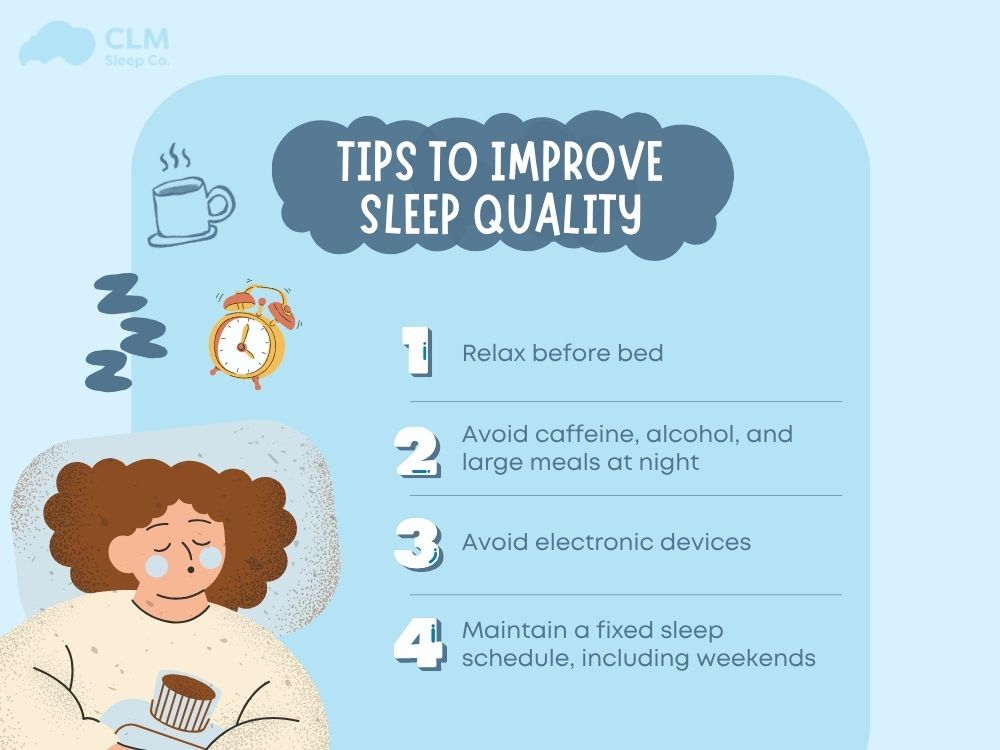
See more:
When to Seek Help from a Sleep Specialist
See a certified sleep coach or sleep therapist if you are experiencing any of the following:
- You have difficulty sleeping or often wake up at least three nights a week, lasting more than three months.
- Snoring loudly, and feeling suffocated while sleeping or having short apnea.
- Even though I get enough sleep, I still feel tired and have headaches when I wake up.
- Having problems with memory, emotions, and concentration that affect life.
To accurately evaluate sleep problems, experts can apply many different methods. They can show you how to keep a detailed sleep diary, using a specialized sleep tracking device. They even recommend overnight sleep testing (polysomnography) if dangerous medical conditions such as sleep apnea or chronic insomnia are suspected.
Conclusion
Understanding how many hours of sleep we need helps us optimize our health, concentration, and spirit at any age. Most adults get the recommended 7 to 9 hours of sleep. However, the most important thing is still quality, specifically deep sleep and REM sleep . If you experience persistent fatigue, examine your habits or seek professional help. At the same time, prioritize sleep every day to feel a lasting positive difference.
Reference
1. Hirshkowitz M, Whiton K, Albert SM, Alessi C, Bruni O, DonCarlos L, et al. National Sleep Foundation’s sleep time duration recommendations: methodology and results summary. Sleep Health. 2015 Mar;1(1):40–43. doi:10.1016/j.sleh.2014.12.010.
